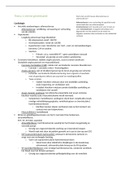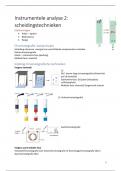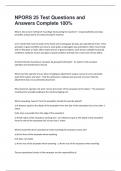Convincing?
Statement of Intent: I will be arguing that philosophical behaviourism is not convincing account of what
the mind is. Whilst Ryle’s Behaviourism faces less logical issues and is more internally consistent then
Hempel’s Behaviourism, both types don’t respond with the phenomenology of mental life and both are
quite counter-intuitive with regards especially to asymmetry of knowledge. In facing these problems they
can’t deal with these objections successfully and thus overall neither are successful theories.
RICE 1:
R: Hard Philosophical Behaviourism is not convincing because it fails to show that aspects of his theory is
even possible due to multiple realizability. People with the same mental state behave differently both in
diff and same circumstances. It is not possible to draw up a finite list of hypotheticals conditionals or
statement of the conditions of verifications that describe all the ways someone of mental state may
behave. This challenge a key claim of hard behaviourism and that is it’s claim that there will be a finite and
complete disjunctive translation of either/or statements whereas multiple realizability claims that that is
not possible. If a central claim is proved wrong then it isn’t convincing. It should be noted that this doesn't
apply to Ryle because he never claimed to have a finite list - he argues for an open list of hypotheticals
and therefore doesn't face this issue.
I: Hempel could response saying that the ultimate translation will be to neurophysical statement as he
does say that psychological statement will be translated via bodily behaviour statements to neurophysical
statement ‘eg Sam is in x neural state’. And there will be a finite number of neurophysical statements due
to there being finite states. Therefore it remains that there is a finite list and so hard behaviourism central
claim is maintained
C: Two problems with this. Firstly focusing on neaurphysical statement within itself defeats the point of
analysing mental states in terms of behaviour - it sort of shifts the focus more on the brain and more like
MBTIT rather then behaviourism. Secondly even if that is the case neaurophysical statement faces it’s own
multiple realisability problem - one and the same mental state can be ‘realised by different physical states.
Pain can be realised by human, dog or elephant brain. Therefore if we are to accept the response we are
to see that it doesn't solve the initial issue and if anything deviates from Philosophical Behaviourism to
MBTIT
E: Therefore Hard Behaviourism is not convincing on the account that it isn’t logically coherent with
objections which damage what hard behaviourism is even arguing for in the first place. Not as crucial as it
only attacks one of the forms of behaviourism.
It should be noted as well that as well as multiple realisability, Hard Behaviourism faces a circularity
objection which hasn’t been resolved. It is difficult to analyse mental states in terms of behaviour and
behavioural dispositions because how someone behaves in a particular situation depends not only on one
mental state but on how this interacts with other mental states. Someone who is afraid of snakes will run
away if they know snakes are there and believe it is dangerous. Therefore we can’t specify the verification
conditions for a mental state without mentioning other mental states - a circular analysis. This is crucial as
Hempel thinks that we can give a complete translation of psychological statements into behavioural
statements with no mental concepts. However the circularity argument shows there will still be mental
states therefore it is impossible to have a complete translation with no mental concept - a key aspect of
Hard Behaviourism. Ryle doesn't face this objection because he never claimed that there is a complete
translation with no mental concepts. He already accepted his open list of hypotheticals will contain some
mental concepts anyway. Just another example of Hard Behaviourism is logically incoherent.
Is Philosophical Behaviourism Convincing? 1





